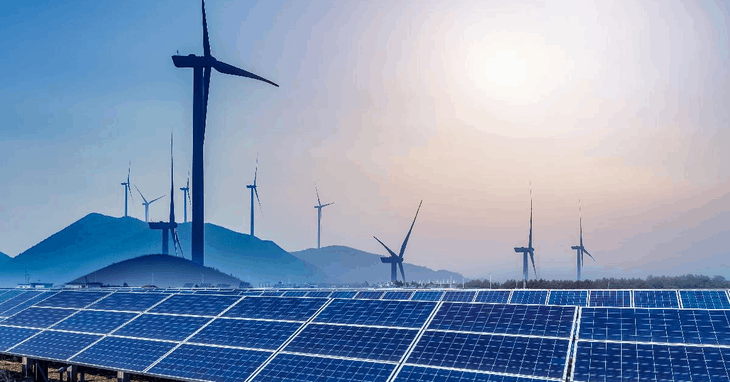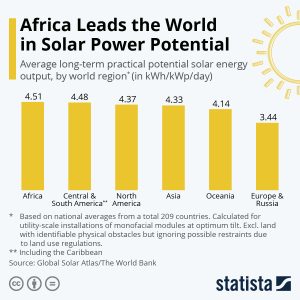
Strongly driven by the climate change impacts on the global economy, the alternative energy campaigns aspire toward reaching a major turning point in achieving the sustainable development goals, especially in developing countries of the world where the impacts of Climate change have been estimated to be most felt. In Africa, nearly 80 percent of the population in rural regions that depend on farming and agricultural activities is most vulnerable to the impacts of Climate Change.
Besides the Climate change impact which is often thought of as a consequence of the excessive use of or overdependence on fossil fuels, the ongoing Russia-Ukraine war which has significantly disrupted the global supply chain for energy and gas now heralds a sober reflection and reconsideration of alternative energy investment in many world countries that have had their share of pains from the gas and energy shortfall due to the war whose end is hitherto unknown.
For example, Nigeria which is the highest oil producing country in Africa and the sixth largest in the world within the Organization of Petroleum Exporting Countries (OPEC) has experienced series of economic hardships lately due to external and internal factors impacting the oil sector and mainstay of the nation’s economy. While the demand and price of crude oil produced in the country have been seriously decimated at the international market due to the Russia-Ukraine war, the incidence of crude oil theft internally have skyrocketed, with the country losing about 500,000 barrels per day.
Register for Tekedia Mini-MBA edition 19 (Feb 9 – May 2, 2026): big discounts for early bird.
Tekedia AI in Business Masterclass opens registrations.
Join Tekedia Capital Syndicate and co-invest in great global startups.
Register for Tekedia AI Lab: From Technical Design to Deployment (next edition begins Jan 24 2026).
The consequent proposal by the Federal Government for the removal of fuel subsidy in the country effective from 2023 has not really gone down well with majority of the citizens who believe fuel subsidy removal will not only increase the cost of production for the industries but will also increase the cost of living for the average citizens.
The big question therefore is; what is the nation doing to harness its alternative energy resources? Will the fuel subsidy, if eventually removed, be the opportunity cost for improved solar energy services in the country?
According to data from the Global Solar Atlas for The World Bank as analyzed by Statista, Africa has the highest potential for solar energy worldwide with an estimated average capacity of 4.51kwh/kwp-day compared to 4.48 and 4.37 estimated for Central and South America and North America respectively.
The following chart depicts the average long-term practical potential solar energy output by global region:

It is reported that roughly 20 percent of the world’s population lives in 70 countries which possess excellent conditions for solar power, that is, a long-term output that exceeds 4.5kwh/kwp-day. On world region basis, only the countries in Africa are said to collectively average this threshold.
However, despite presenting unique opportunities to provide affordable, reliable and sustainable electricity that could service a large share of humanity which will improve economic activities and quality of lives within the region, Africa’s solar energy potential has remained largely untapped, especially in the less developed countries of the continent.



